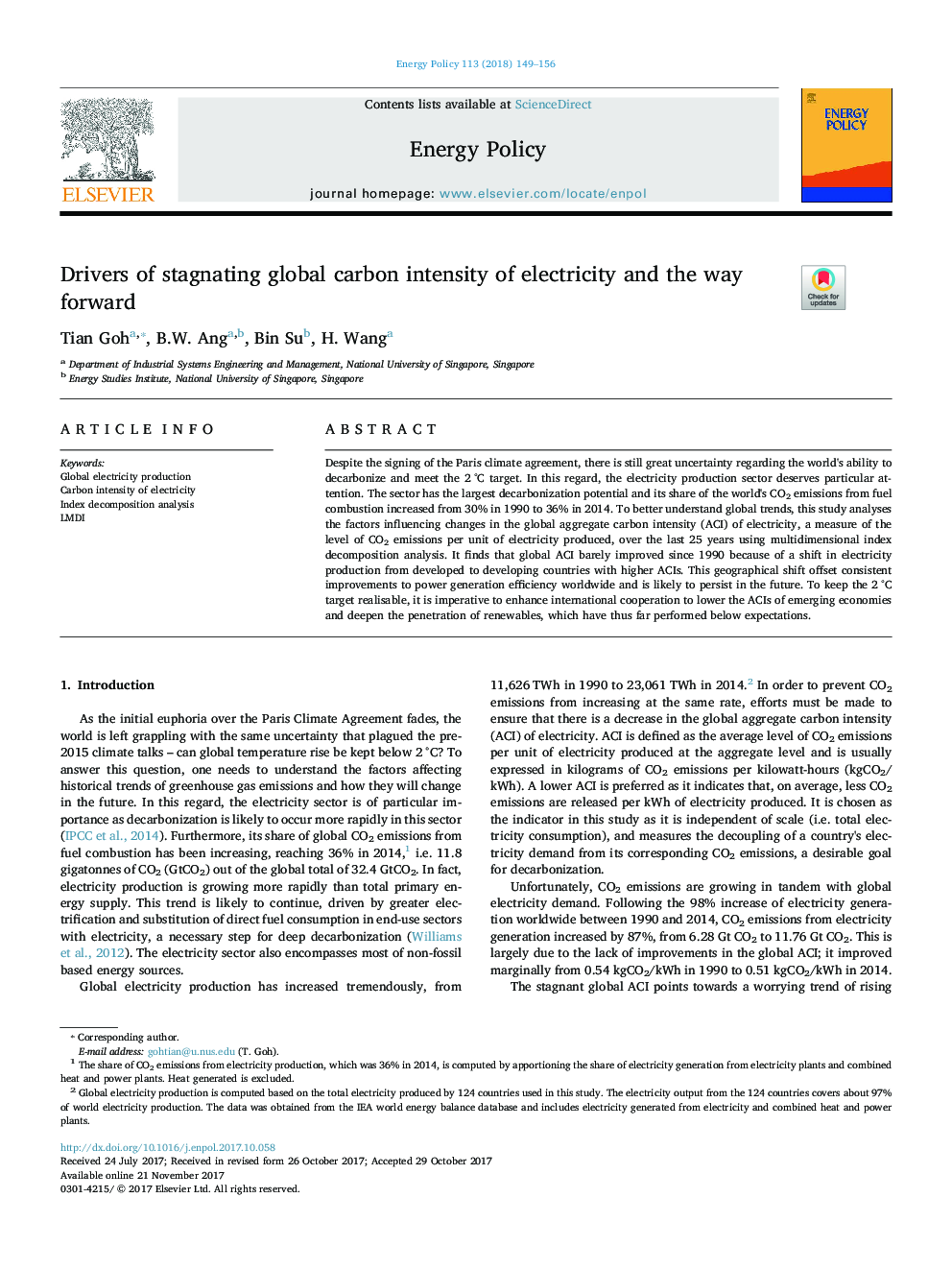| Article ID | Journal | Published Year | Pages | File Type |
|---|---|---|---|---|
| 7398072 | Energy Policy | 2018 | 8 Pages |
Abstract
Despite the signing of the Paris climate agreement, there is still great uncertainty regarding the world's ability to decarbonize and meet the 2 °C target. In this regard, the electricity production sector deserves particular attention. The sector has the largest decarbonization potential and its share of the world's CO2 emissions from fuel combustion increased from 30% in 1990 to 36% in 2014. To better understand global trends, this study analyses the factors influencing changes in the global aggregate carbon intensity (ACI) of electricity, a measure of the level of CO2 emissions per unit of electricity produced, over the last 25 years using multidimensional index decomposition analysis. It finds that global ACI barely improved since 1990 because of a shift in electricity production from developed to developing countries with higher ACIs. This geographical shift offset consistent improvements to power generation efficiency worldwide and is likely to persist in the future. To keep the 2 °C target realisable, it is imperative to enhance international cooperation to lower the ACIs of emerging economies and deepen the penetration of renewables, which have thus far performed below expectations.
Keywords
Related Topics
Physical Sciences and Engineering
Energy
Energy Engineering and Power Technology
Authors
Tian Goh, B.W. Ang, Bin Su, H. Wang,
